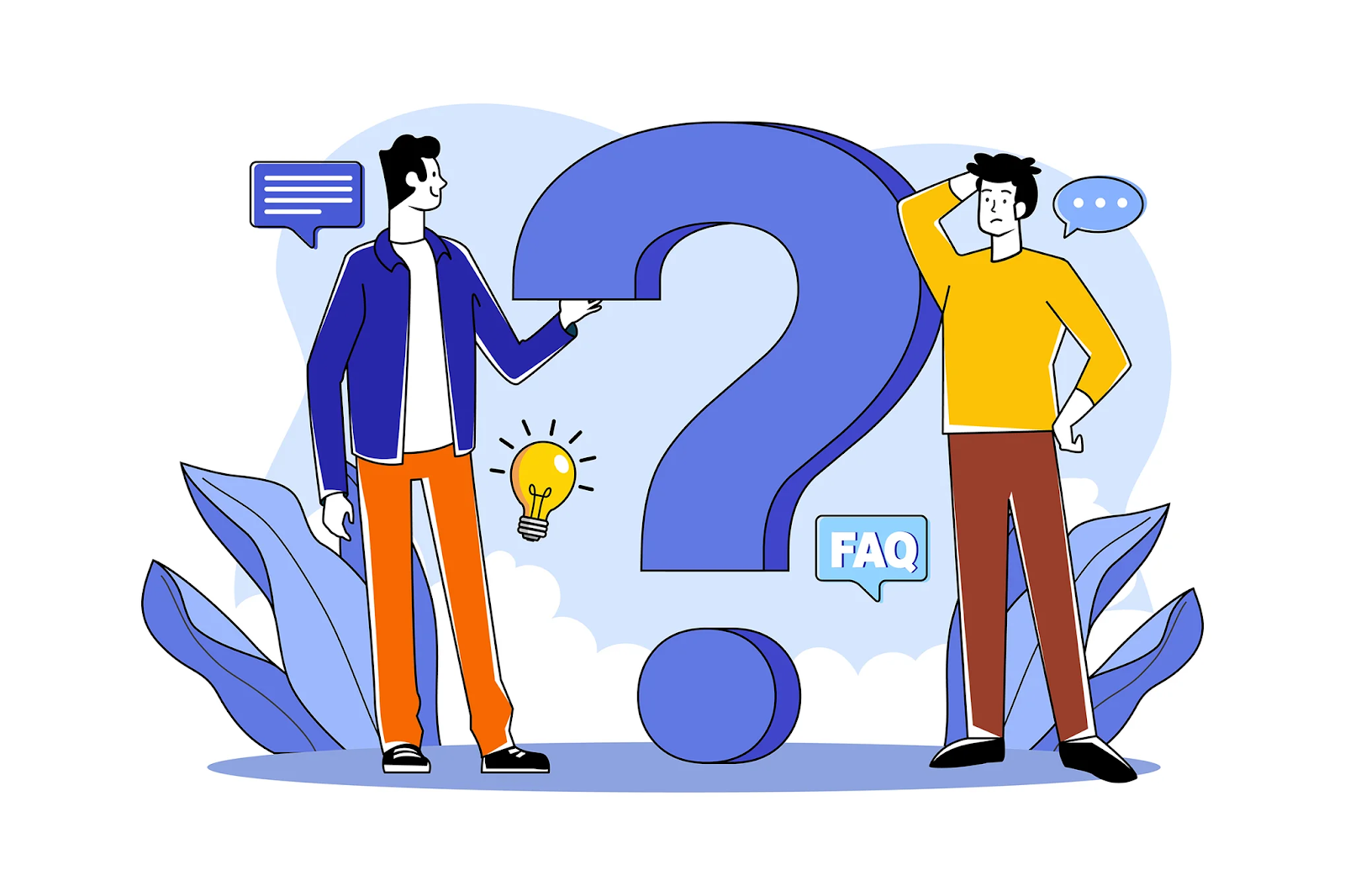Have you heard people say that “SEO is dead” because of ChatGPT and Google’s AI features? Let’s set the record straight: SEO isn’t dead; it’s getting some exciting AI upgrades.
Think of it like this: remember when smartphones replaced flip phones? The basic idea of making calls remained the same, but now you could do so much more. That’s what is happening with search optimization today.
You’ve likely encountered confusing acronyms such as GEO, AEO, LLMO, and AIO. Don’t worry; we’ll break these down and show you why they’re just SEO wearing different outfits for different occasions.
- Wait, What's All This Alphabet Soup About?
- Traditional SEO: Your Reliable Foundation
- GEO (Generative Engine Optimization): SEO for the ChatGPT Era
- AEO (Answer Engine Optimization): Direct Answers, No Detours
- LLMO (Large Language Model Optimization): Getting AI to Know You
- AIO (AI Optimization): The Master Strategy
- Here's the Truth: They're All Just SEO in Disguise
- Why AI is Reshaping How People Find Information
- What This Means for Your Business Moving Forward
- The Skills You Need for AI Optimization Success
- Conclusion: Your AI-Optimized Future Starts Today
- The Bottom Line: Evolution, Not Revolution
Wait, What’s All This Alphabet Soup About?
Before we dive in, let’s get a clear view. If you’re new to this, here’s the simplest way to think about these terms:
- SEO = Making your website visible to Google search
- GEO = Making your content visible in AI chat responses
- AEO = Getting your content featured in direct answers
- LLMO = Optimizing for AI models like ChatGPT to reference you
- AIO = The umbrella term for all AI optimization strategies
Still with us? Great! Now, let’s ponder each one as if we’re chatting over coffee.
Traditional SEO: Your Reliable Foundation

Think of traditional SEO as learning to drive a regular car. You master the basics: good content, fast website, mobile-friendly design, and getting other sites to link to you. These fundamentals haven’t vanished; they form the foundation on which everything else is built.
Traditional SEO focuses on making Google’s algorithm like your content enough to show it when people search for relevant terms. You optimize for keywords, create helpful content, and hope people click through to your website.
But search is changing. In 2024, 17% of U.S. respondents reported preferring chatbot-style AI answers over traditional search engines. AI traffic is expected to grow from 0.25% to 10% of total traffic by the end of 2025.
GEO (Generative Engine Optimization): SEO for the ChatGPT Era
Imagine if, instead of showing you 10 blue links, Google’s AI just wrote a personalized answer to your question. That’s what Generative Engine Optimization prepares you for.
GEO is about ensuring that when AI systems like ChatGPT, Google’s AI Overview, or Claude generate responses, your content or brand is referenced. It’s like being the brilliant friend everyone quotes in group conversations.
Here’s what makes GEO different from traditional SEO:
- Instead of optimizing for clicks, you optimize for mentions
- Your content needs to be authoritative so AI trusts it as a source
- You focus on comprehensive answers rather than keyword density
Real-world example: When someone asks ChatGPT, “What’s the best project management software?”, GEO helps ensure your product gets mentioned in that AI-generated response.
AEO (Answer Engine Optimization): Direct Answers, No Detours
Remember when you had to click through multiple websites to find a simple answer? AEO eliminates that frustration by optimizing your content to appear as direct answers.
Think about when you ask Siri or Google a quick question and get an instant response—that’s AEO in action. Your content becomes the source of these immediate queries.
AEO focuses on:
- Structuring content in Q&A format
- Using conversational language that matches how real people talk
- Creating content that directly satisfies search intent without the need for additional clicks
Real-world example: When someone searches, “How long does it take to rank on Google?”, AEO optimization helps your content appear in Google’s featured snippet with a direct answer like, “Most websites see ranking improvements in 3-6 months with consistent SEO efforts.”
LLMO (Large Language Model Optimization): Getting AI to Know You
LLMO is like networking, but with algorithms. It’s about making AI models so familiar with your brand and expertise that they naturally reference you when generating responses.
Think of it this way: if ChatGPT were a brilliant colleague, LLMO ensures that when someone asks them about your industry, they go, “Oh, you should definitely check out what [Your Company] says about this.”
LLMO focuses upon:
- Building topical authority with the help of nicely interlinked content
- Creating content that AI can easily understand and refer to
- Appointing your brand as a go-to reference in your niche
- Using clear context between different points of reference
Real-world example: When someone asks ChatGPT about email marketing best practices, LLMO ensures your company gets mentioned as a trusted authority in that AI-generated response.
AIO (AI Optimization): The Master Strategy
AIO is like being the popular kid who gets along with everyone. It’s the overall strategy that ensures your content works well across all AI-powered systems—from Google’s AI Overview to ChatGPT to voice assistants.
AIO recognizes that AI is everywhere now, not just in search engines. We need to optimize for the entire AI ecosystem, including:
- Search engine AI features (Google’s AI Overview, Bing Chat)
- Standalone AI assistants (ChatGPT, Claude, Perplexity)
- Voice assistants (Siri, Alexa, Google Assistant)
- Industry-specific AI tools
Real-world example: When someone asks ChatGPT, “What’s the best project management software?”, AIO helps ensure your product gets mentioned in that AI-generated response.
Here’s the Truth: They’re All Just SEO in Disguise
What we’ve learned from working with many clients is that these aren’t revolutionary new practices. They’re simple SEO principles adapted for AI. Remember when websites weren’t responsive and we had to optimize them separately for mobile devices? Same idea here. The core goal remains the same: connect people with helpful information. What’s changed is how that information is delivered.
The fundamentals that still matter:
- Create beneficial content
- Focus on your website’s technical health
- Build authority and trust
- Understand your audience’s requirements
What’s new:
- AI systems are now the intermediaries between your content and users
- Optimization happens for mentions, not just clicks
- Conversational queries are more important than keyword stuffing
Why AI is Reshaping How People Find Information
Let’s discuss the current state of the search world. The changes are significant:
Google’s AI Overview now appears at the top of many search results, giving users instant AI-generated answers. This means traditional organic results get pushed down. Some users love this convenience, while others look for “real” sources.
People are asking different questions. Instead of typing “best CRM software,” users might ask, “What CRM software should a small marketing agency use for client management?” AI handles these complex, conversational queries much better than traditional search.
Multiple AI platforms mean your audience might find you through ChatGPT, Claude, Perplexity, or Google’s AI—not just Google search. Each platform finds and presents information differently.
What This Means for Your Business Moving Forward

The shift toward AI-powered search represents an opportunity, not a threat. Here’s how we suggest approaching this transition:
- Start small and test. Pick your most important pages and implement AI optimization techniques gradually. Monitor how these changes affect both traditional search performance and AI mentions.
- Invest in content depth. AI systems favor comprehensive, authoritative content. This is a great excuse to create the resources your audience actually needs.
- Think beyond Google. While Google remains dominant, users are increasingly turning to AI assistants for information and guidance. Ensure your optimization strategy accounts for this behavioral shift.
- Measure what matters. Traditional metrics, such as click-through rates, are important, but it’s also essential to start tracking new metrics, like AI citation rates and brand mentions in AI responses.
Check out: 5 Proven Tips for Startups for Massive Organic Growth
The Skills You Need for AI Optimization Success
If you’re wondering whether you need to learn completely new skills, the answer is mostly no. The core skills that make great SEO professionals are the same required for AI optimization:
- Content strategy expertise (understanding user intent and creating helpful content)
- Technical SEO knowledge (ensuring AI can crawl and understand your content)
- Data analysis skills (measuring performance across multiple platforms)
- Authority building (earning trust signals AI systems recognize)
What’s new is understanding how different AI systems work and optimizing content for citation rather than clicks.
Check out: How to Build a Content Strategy in 2025
Conclusion: Your AI-Optimized Future Starts Today
So, is SEO dead? Not at all. It has just learned some new tricks and made some AI friends along the way.
Here’s what we want you to remember: GEO, AEO, LLMO, and AIO aren’t new, scary ideas that require you to throw out everything you know about digital marketing. They’re just the next chapter in the story we’ve been writing since search engines began—helping people find the information they need.
The beauty of this evolution is that if you’ve been doing good SEO—creating helpful content, building authority, optimizing technically, and focusing on user intent—you’re already 70% of the way there.
Learn how to combine SEO and CRO for unstoppable website growth
What makes the difference now is intentionality. Instead of optimizing just for Google’s algorithm, we’re optimizing for an ecosystem of AI systems that all want the same thing: reliable, comprehensive, well-structured information they can trust and cite.
The companies that will dominate search visibility won’t be those with the most significant budgets or the most advanced AI tools. They’ll be the ones that understand this fundamental truth: whether a human finds your content through a Google search or an AI mentions your brand in a response, the goal is the same—providing genuine value.
Start small, stay consistent, and remember that every piece of helpful content you create today is an investment in your AI-optimized future. The search landscape is evolving, but your commitment to serving your audience will always be your most significant competitive advantage.
The Bottom Line: Evolution, Not Revolution
We’ve been helping businesses navigate search changes with our growth marketing services for years. Here’s what we’ve learned: successful companies don’t abandon proven strategies; they adapt them to meet changing needs.
The marketers thriving in 2025 won’t be those chasing every new acronym. They’re the ones who understand that GEO, AEO, LLMO, and AIO are simply new applications of timeless principles:
- Understand your audience (What questions are being asked on AI engines?)
- Create valuable content (Information AI systems trust and cite)
- Build authority (Become a source AI models trust)
- Stay technically sound (Ensure AI can access your content)
- Monitor and adapt (Track AI mentions, not just rankings)
Whether someone finds you through a Google search, ChatGPT, or the next AI platform, the fundamentals stay the same. Focus on being genuinely helpful, technically sound, and trustworthy.
The future of search is AI-powered, but the future of optimization is still about connecting people with the information they need. We’re just using more innovative tools to do it.
Ready to optimize for the AI era? Start with your most important pages, implement these strategies step by step, and remember that good SEO practices have always been about serving your audience better. That hasn’t changed, and it never will.



